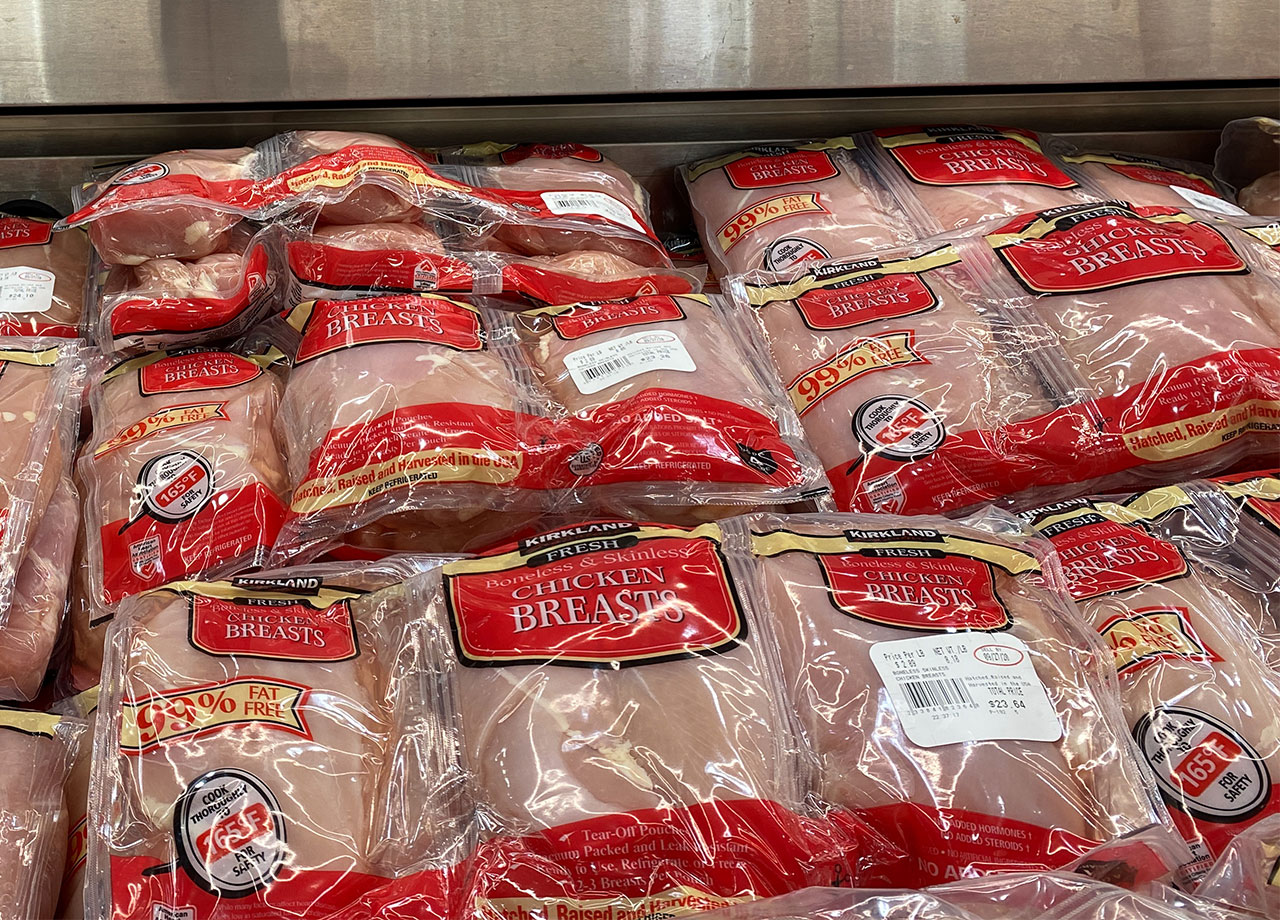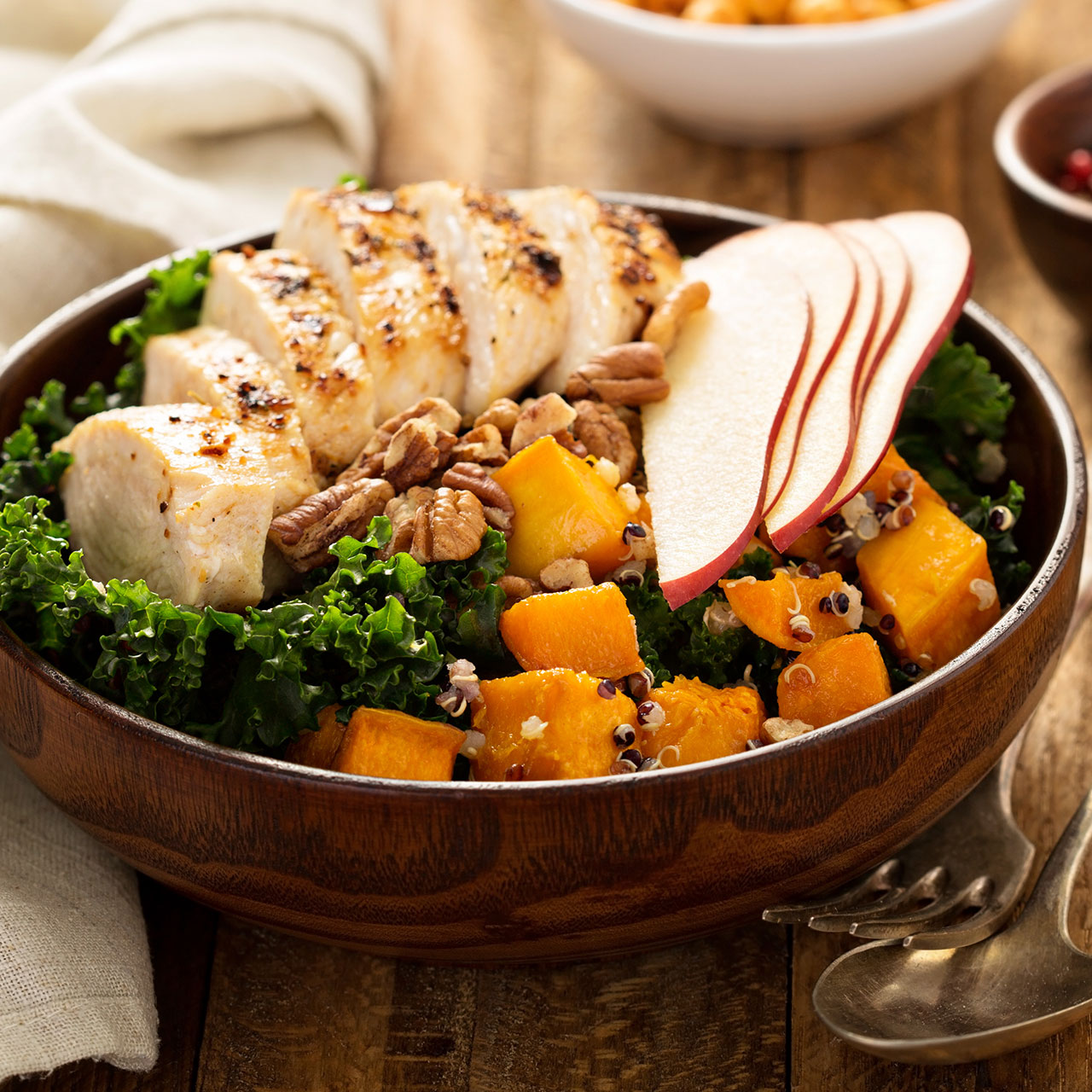This post has been updated since it was originally published on May 13, 2022.
High blood pressure is unfortunately very common in the United States. According to the CDC, nearly half of adults in the United States suffer from it. While external factors like genetics, pre-existing conditions, and medications can be contributing causes, taking preventative measures by leading a healthy lifestyle and following a nutritious diet are the best ways to reduce your risk. Your nutrition habits are an essential factor, so knowing what a heart healthy diet looks like is the first step in investing in your heart health. Even if you already suffer from hypertension, it’s never too late to make lifestyle changes, as this can ease your symptoms and improve your quality of life.


First Off, What Is High Blood Pressure?
Many of us wonder, what exactly is hypertension, or high blood pressure, and how does it affect your body? Your blood actually needs some level of force to efficiently pump blood to all through your arteries, veins, and capillaries. But, when that force, your “blood pressure,” gets too high, it can cause damage in the body in two major ways—first, it can put excess stress on the heart and blood vessels, and second, this constant pressure can cause tearing and accumulation of plaque in the blood vessels. This plaque not only makes the blood vessels more narrow, but also makes it harder for blood to pass through efficiently. All of this can increase your risk for things like a heart attack and stroke. With all of that said, we asked experts for more information on 2 types of foods that could hinder or worsen heart health, and why they should be avoided if you already suffer from high blood pressure.

Canned Foods
We all know that fried and overly processed foods aren’t good for your heart (or your health overall), but one food you may not know could be increasing your risk of heart-related health issues is canned food. “Many canned foods include preservatives and toxic substances like BPAs,” says Pamela Barton, R.H.N., NNCP, founder of Butterfly Nutrition, “Especially acidic foods like tomatoes and sauces, which can bring these toxins out and leak into the foods.”
Canned vegetables, legumes, and even meats are often a go-to for households, as they are a cost effective and quick addition to any meal. But, one study found that the BPAs found in cans could increase your risk of high blood pressure. Barton recommends getting your foods fresh, beans and legumes dried, and sauces in glass jars when possible. However, sometimes canned foods are the easiest way to get nutrients found in vegetables and legumes. Even reducing your use of canned foods can make a difference—something is better than nothing. You can also make an effort to purchase BPA-free canned goods when shopping if you like the convenience of purchasing canned items.
At the end of the day, the best diet is one that is manageable in the long term and makes you feel good. An all or nothing mindset is impossible to achieve, so prioritizing balance and remembering that your “best” is different than everyone else’s is key. BPA is one sneaky substance that could increase your risk of heart-related illness, so making an effort to be conscious and avoid it when possible, particularly by avoiding canned foods, is a way you can make a long term investment in your heart health.

Processed Meat
Consuming frozen breakfast foods especially processed meat can also be detrimental to your health. According to Caitlin Policastro, a nurse practitioner at the New York Center for Innovative Medicine, "Pork is loaded with saturated fat—leading to cardiovascular problems, high cholesterol, weight gain and more.”
Similarly, Dr. Bargout, a cardiologist at Dignity Health-Glendale Memorial Hospital shares that the worst food for your heart health is anything that is high in saturated fat. He explains, “Food that is rich in saturated fat increases total cholesterol, LDL, and lipoprotein (Lp)a.” When you have too much of this waxy substance in your bloodstream, it can prevent blood from pumping efficiently. As a result, you increase your risk of getting heart diseases.
Sugary Snacks
Health and nutrition expert Dr. Virginia Blackwell, MD, notes that sugary foods or snacks with high sugar content can wreck havoc on your heart health (and potentially bring many other negative effects as well). "Consuming sugar-sweetened foods such as cakes, dairy desserts and donuts may cause an impact of slow metabolic rate and weight gain," she says.
The fructose component in sugar, Blackwell explains, results in dysregulation of carbohydrates and lipids, thus leading to slow metabolism. "This slow metabolism may be dangerous to people with life factors such as older age, and reduced physical activity as their body will only burn fewer calories," she adds.
This means more calories from these sugary foods will be stored as excess fats in the body and lead to weight gain, as well as a greater risk factor of various health conditions. These include "diabetes, stroke, high blood pressure, and breathing problems," she concludes, advising anyone with already high blood pressure to steer clear of these snack types.


























